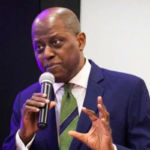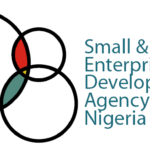The Bank of Industry (BoI) has clarified the implementation and disbursement of grants under the NG-CARES programme following questions raised by some stakeholders.
NG-CARES is an initiative of the World Bank and the Federal Government of Nigeria to support the recovery of communities, households, and businesses affected by COVID-19. The programme is state-owned, as state governments are fully responsible for funding and selection of beneficiaries.
According to a statement from the bank, the funding arrangement allows each state the autonomy to determine its preferred grant sizes and number of grants across different programme components as approved by the World Bank.
It said, “Based on the Bank of Industry (BOI) successful track record of building field networks and technology infrastructure for the transparent implementation of MSME intervention programmes, the World Bank nominated the bank to provide this infrastructure for the delivery of the MSME component of NG-CARES (RA3) nationwide.
“Following this nomination, 28 out of 33 states chose BOI as their preferred execution partner to leverage the bank’s MSME infrastructure to deliver NG-CARES.
“Under this partnership, the states are solely responsible for nominating the beneficiaries and selecting those that grants are to be disbursed to, following successful verification. BOI’s role as execution partner is to manage the end-to-end application and verification processes, and present successful candidates to enable states’ decision-making for disbursements. BOI disburses as instructed by the state.”
So far, BOI has received over one million applications for the NG-CARES MSME grants across states.
But the bank explained that “While several beneficiaries may apply or be nominated, beneficiaries do not receive the grant if they do not meet the criteria to qualify, or if their states do not select them for disbursement as the states seek to manage the funding available for the programme and ensure the equitable distribution of benefits across business categories, local government areas, gender or other demographics.”

 Join Daily Trust WhatsApp Community For Quick Access To News and Happenings Around You.
Join Daily Trust WhatsApp Community For Quick Access To News and Happenings Around You.


